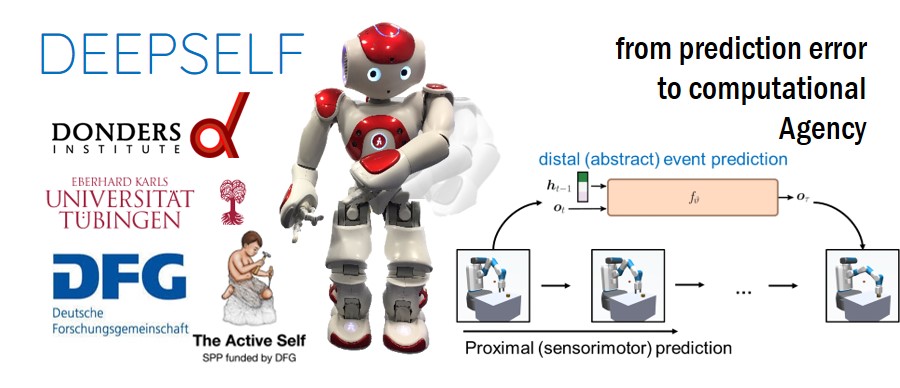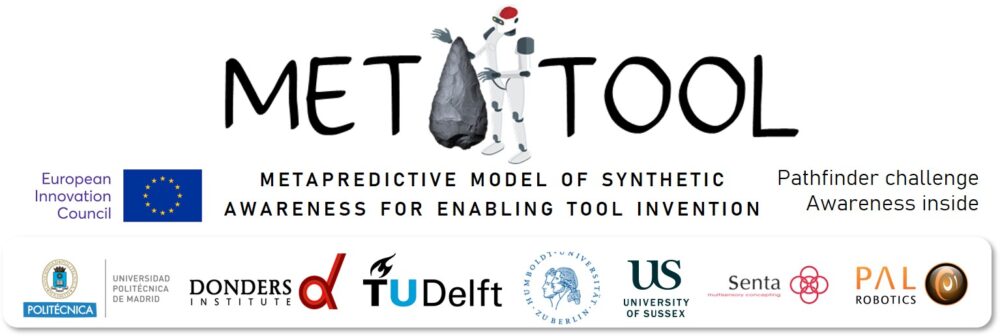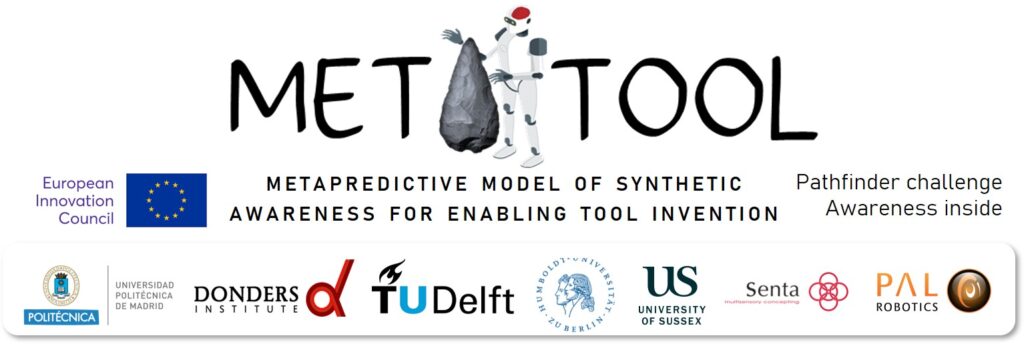We are looking for an expert in #deeplearning and/or #neuroinspired-robotics to work in #Madrid at the CSIC in collaboration with the University of Tübingen in the DeepSelf project.
The Cajal International Center for Neuroscience (CINC, Madrid) of the CSIC is looking for a postdoc / engineer / graduate to work on a project in collaboration with the University of Tübingen (Germany) in the area of robotics and artificial intelligence inspired by neuroscience, for a period of 2 years.
DEEPSELF is a project that lies between machine learning and cognitive science to investigate the emergence of agency in artificial entities by learning hierarchical predictive encodings of events.

Interested contact p.lanillos[at]csic[dot]es
Description
Agency appears to enable us to learn, discern and anticipate the consequences of our actions. What should be the internal representation that the agent should learn to plan in different temporal scales? how we can enable robots to answer ‘Did I do it?’ and use that information to interact with the world?
The postdoc will be in charge of developing new brain-inspired machine learning models to allow a robot to learn hierarchical event codes from sensorimotor experience and plan future actions using these event codes. This abilities will be tested in robotic experiments to investigate the emergence of Agency on three levels of abstraction based on human science findings.
The selected candidate will work in an international project team in close collaboration with two PhD students and the principal investigators. The candidate will join an exciting and vibrant young team of experts in machine learning, artificial intelligence and robotics, as well as, be part of a big community of ~20 interdisciplinary research projects under the Active Self DFG priority program umbrella. Thus, the candidate will have the opportunity to take leadership responsibilities and considerably increase the research network. Furthermore, the candidate will participate in summer schools and events organized by the priority program.
Keywords: Hierarchical Deep Learning, Event Segmentation Theory, Active Inference, Robot learning, Agency.
We strongly encourage submissions from different representative minorities.
Profile
- Doctor/Master in Computer Science, Computer Engineering, Physics, Mathematical telecommunications, Robotics or similar.
- Professional written and spoken English.
- Knowledge of deep learning and/or robotics.
- Concerns in brain-inspired machine learning or interest in cognitive psychology.
Responsibilities
- Develop brain-inspired machine learning models using deep learning techniques.
- Publication of results in international conferences and high-impact journals.
- Participation in the financing program meetings in Germany.
Work environment
The selected candidate will work at the Higher Council for Scientific Research (CSIC, www.csic.es), the largest research institution in Spain. In particular, the work will be carried out at the Cajal International Center for Neuroscience (CINC, www.cinc.csic.es/) in Madrid (currently our location is Avd. Doctor Arce 37) under the supervision of Dr. Pablo Lanillos in the NAIR group: https://neuro-ai-robotics.github.io/. The worker will have the opportunity to collaborate and interact with renowned experts in multiple fields and benefit from an exciting growth environment around this new center, the collaboration with the University of Tübingen in Germany, and its insertion into a German research consortium. funded by the German Research Agency.
References
Lanillos, P., Meo, C., Pezzato, C., Meera, A. A., Baioumy, M., Ohata, W., … & Tani, J. (2021). Active Inference in Robotics and Artificial Agents: Survey and Challenges. Under review IEEE T-RO [Paper]
Gumbsch, C., Butz, M. V., & Martius, G. (2021). Sparsely Changing Latent States for Prediction and Planning in Partially Observable Domains. Advances in Neural Information Processing Systems, 34. [Paper]

